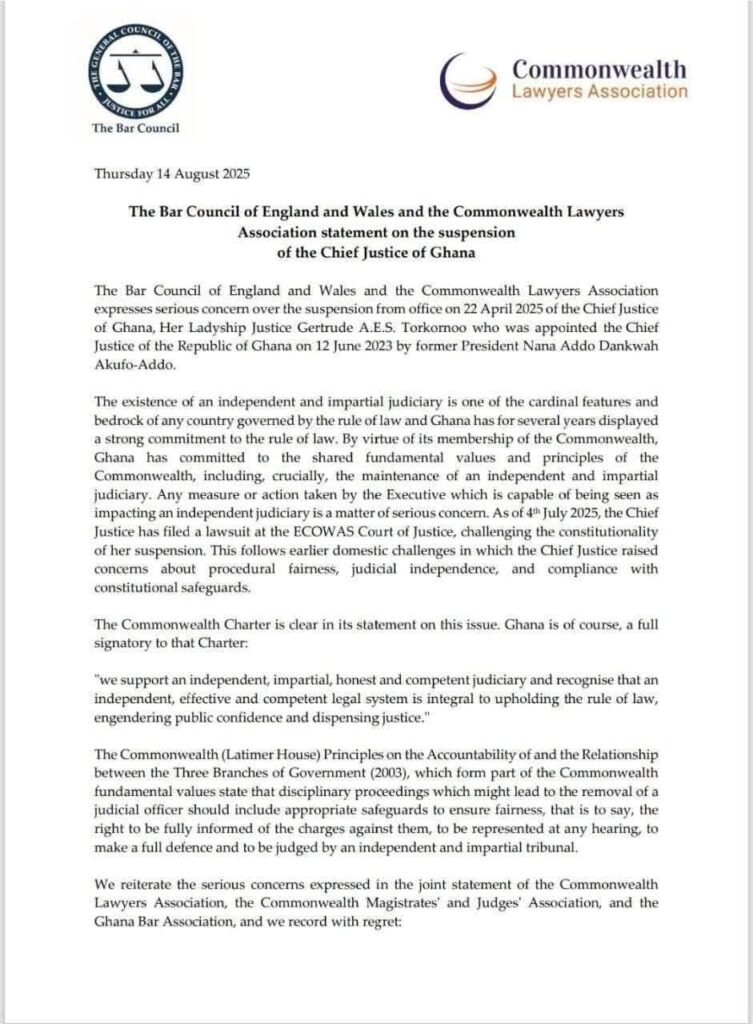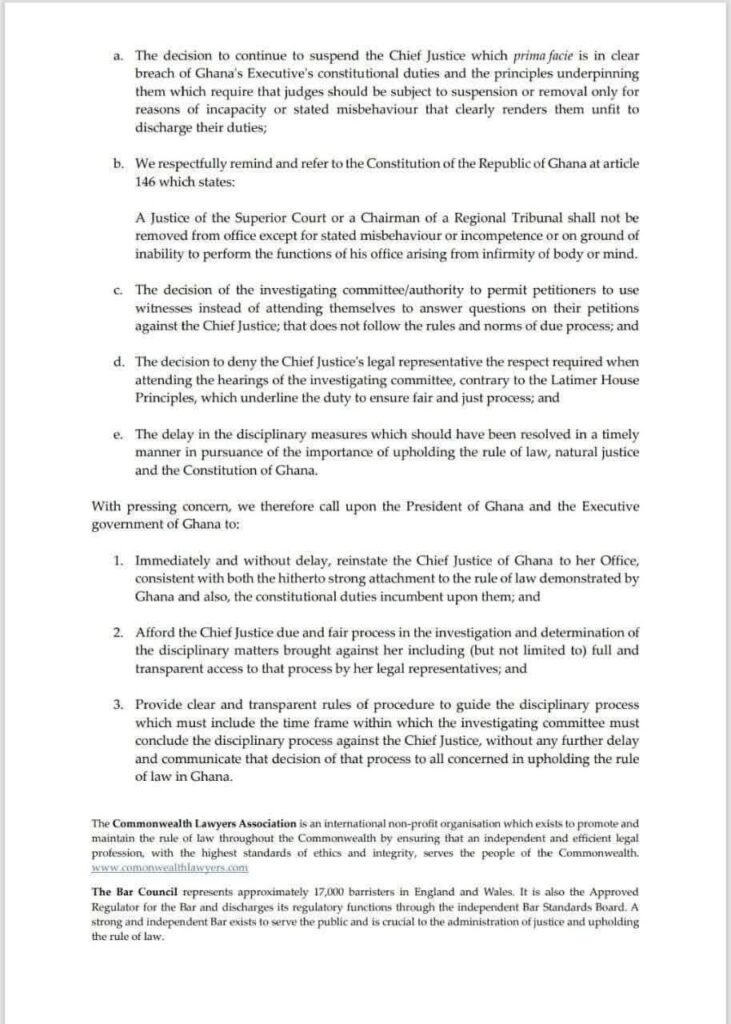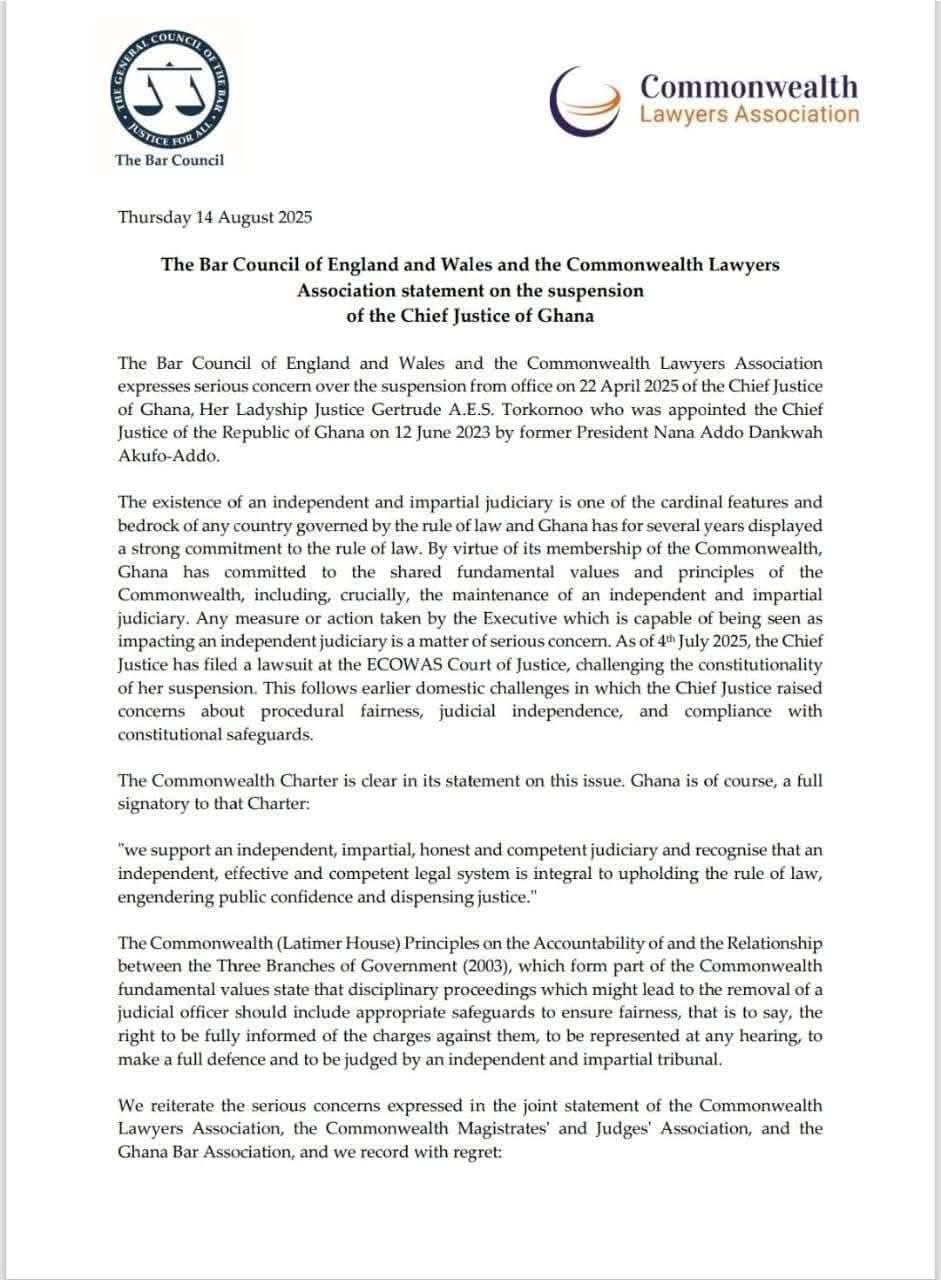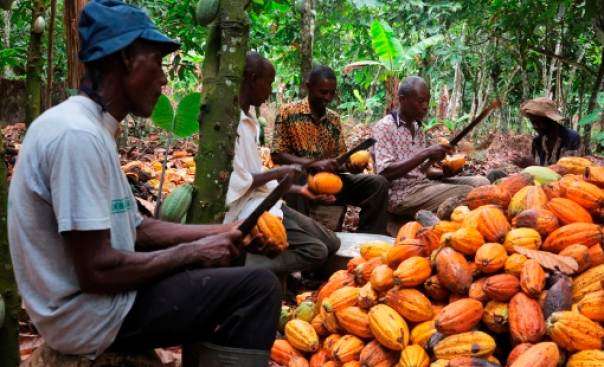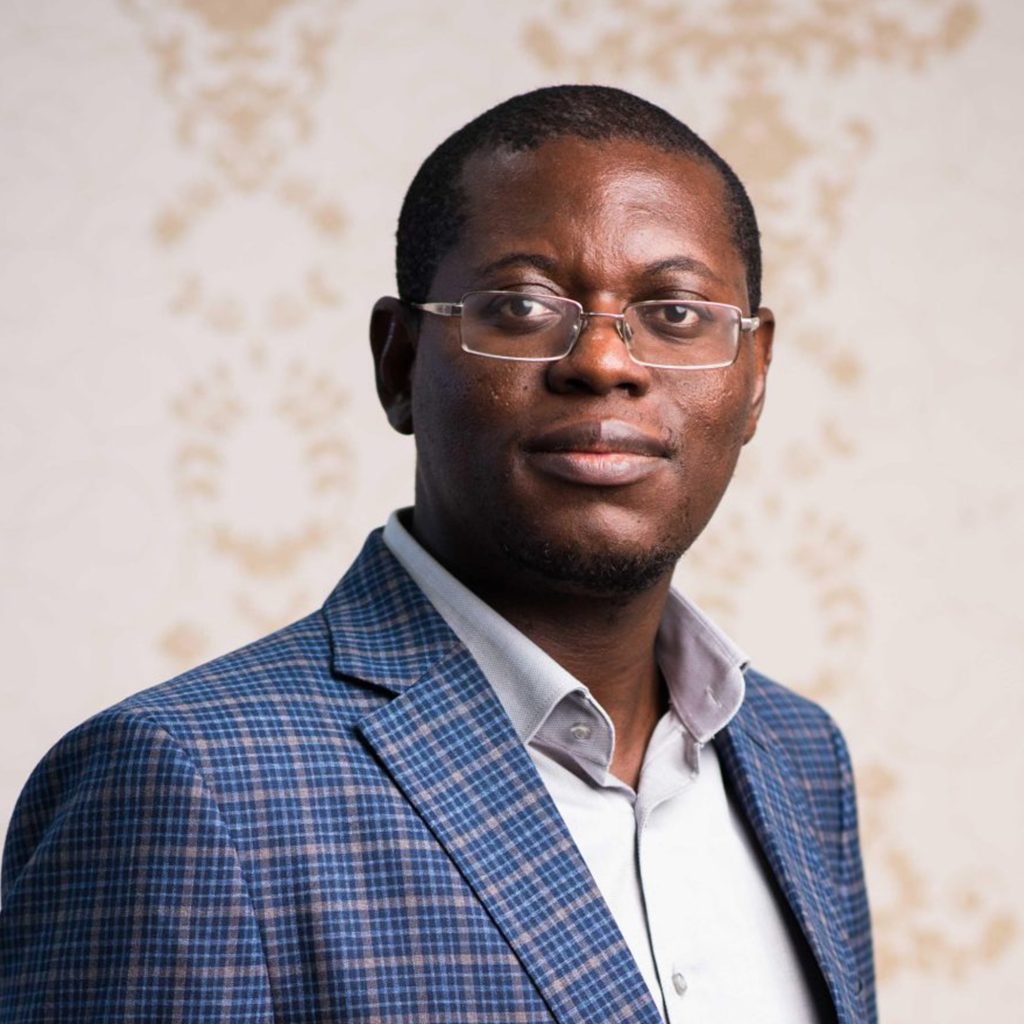The suspension of Chief Justice Gertrude Torkornoo is no longer just a legal matter—it is a test of Ghana’s democratic spine.
On April 22, President John Dramani Mahama invoked Article 146 to remove the nation’s top judge from her post pending investigations into misconduct and incompetence. Three petitions, one filed by an unregistered group with anonymous members, form the basis of this move. The process has since been shrouded in secrecy, disputed procedure, and allegations of political bias.
The Ghana Bar Association calls it unconstitutional. Civil society sees it as an assault on judicial independence. Now, the Bar Council of England and Wales and the Commonwealth Lawyers Association have joined the chorus, warning that the rule of law is at stake and urging immediate reinstatement. Their message is simple: fairness must not only be done—it must be seen to be done.
Under the 1992 Constitution, presidential discretion is not absolute. Article 296 demands transparency and regulation. Article 19 guarantees due process. Ignoring these safeguards erodes the judiciary’s credibility and feeds public suspicion that this is more political takedown than principled discipline.
The Commonwealth’s Latimer House Principles are clear: judges can only be removed through an independent, impartial process, free from executive influence. Ghana helped craft those standards. Will we now ignore them?
The stakes are high. A flawed process will not only weaken the Chief Justice’s office—it will damage the moral authority of the Supreme Court itself.
This is not about saving one judge. It is about saving the balance of power on which Ghana’s democracy stands.
